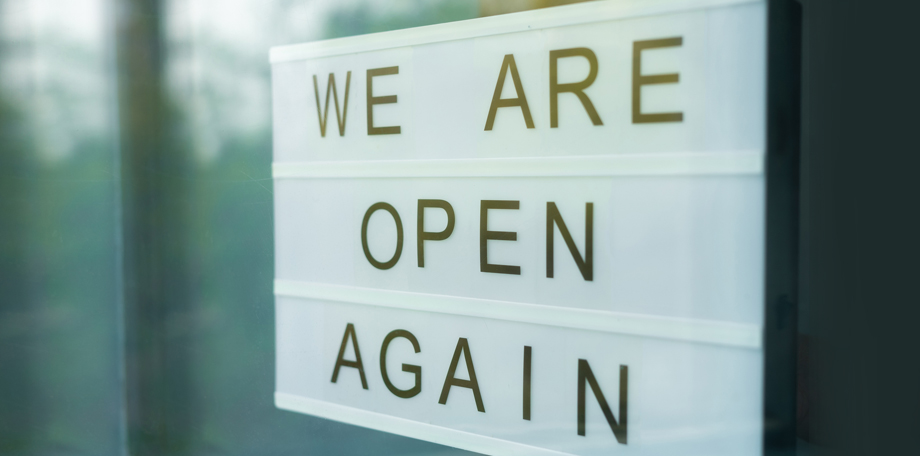More people are feeling more exhausted, depressed and scared now that the country has begun to reopen than we did during quarantine. JMA coaches have noticed a trend of increased stress among their clients, and they are hosting free webinars during these uncertain times to help people deal with the added anxiety.
Executive Coach Nancy Scheel says the higher level of stress can be attributed to the fact that our brains cannot be on the autopilot of monotony that we experienced during lockdown. During that time, there were few choices that needed to be made since everything was shut down. Now, there are decisions that need to be made not only every day but multiple times a day. Answering the litany of questions going through our minds over a simple trip to the grocery store means we are putting so much energy into our everyday decisions, we don’t have a lot of bandwidth left over for the things we enjoy.
Nancy and Executive and Career Coach Anna Bray came together virtually recently to present some strategies to help deal with the uncertainty we are all experiencing. They both agree that the first place to start is with our physical bodies.
Just Breathe
When stress comes up, we tend to react by going into fight or flight mode. But one of the best ways to reduce that disturbance in our body and bring calm to it is to focus on your breathing. Anna led the webinar participants through a simple breathing exercise that you can use whenever you need to call upon peace to respond to something that’s creating stress in your life.
Use “And” to Change Perspectives
Nancy’s exercise for the group focused on the use of the word “and.” The idea is to string together phrases that are all true for you and display the wide range of emotions that we can feel at any given time.
Related: Feelings, Emotions and Moods: How to Say What You are Experiencing
By chaining together thoughts that may seem to be contradictory, Nancy says we can change our perspective, or lens, of how we are viewing the world. It is possible to feel frustrated and hopeful at the same time, because all of those feelings do reside inside us at the same time.
But when those feelings of despair start to become a pattern, it’s important to take action to try to break that cycle. Anna recommends a five-minute meditation, morning run, walk in nature or anything you can do to bring some calm into your life. Do that for several days to see if that has a positive effect on your thought process. If so, keep it up!
Take Back Power
When we find ourselves going to the dark place of disempowerment, Nancy says it’s okay to acknowledge that you don’t have control over everything. But the next step is to realize you do have control over some things, even if it’s just one simple thing, such as taking a deep breath, that lets you take back some power.
It’s important to notice what’s going on in your body and in your mind. If you are paying attention to the thoughts running through your mind and you notice they are putting some dents in your confidence right now, Anna suggests disrupting the trajectory of the thinking that isn’t helping you at the moment.
Nancy agrees that she’s witnessed in her coaching sessions that people who are handling today’s uncertainty well are the ones who are choosing to believe that opportunities still exist. They are able to keep a level of energy of momentum going. On the other hand, the people who remain devastated simply cannot get their mind to a place of acceptance that opportunities will exist after or during this current crisis. It’s totally okay if you don’t know what those opportunities are yet, you just have to have faith that they will one day present themselves to you.
Get Control of Yourself
It’s true that the current circumstances can bring out everyone’s idiosyncratic stress behaviors. Nancy shared the story of a friend who, when stressed, goes into full performance mode and bosses everyone around. While you can’t change the behavior of others, both coaches agree that you can start with yourself first.
Reactive to Creative
Anna had the webinar participants focus on a short exercise. They wrote out the word “reactive” on a piece of paper, crossed out that “c” and moved it to the front of the word to get “creative.” It’s a simple yet important reminder that instead of reacting during times of stress, we can create.
If you are interested in learning more techniques for managing stress in these uncertain times, we are offering our deeply discounted virtual Stress Management Training one final time in July. The three 2-hour sessions will help you increase your capacity to focus, reduce fatigue and increase energy and handle daily stressors. It doesn’t look like the current COVID-19 situation will go away anytime soon, so prepare yourself for the long haul of stress management by arming yourself with the proper tools.
Learn more about Stress Management Training

